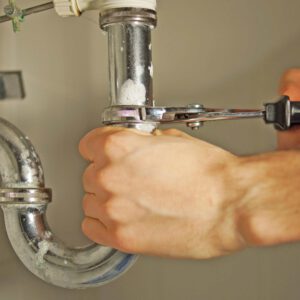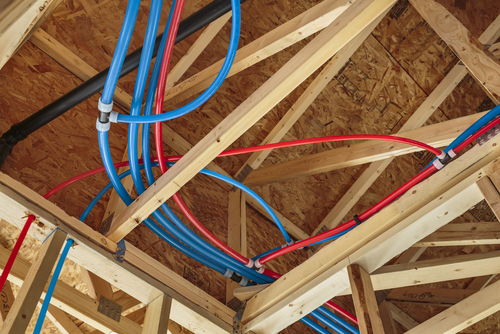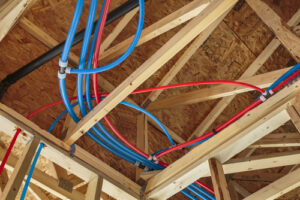Plumbing is a crucial part of society. Plumbers work hard and have a huge impact on people’s lives.

They make sure that we have access to clean water for drinking and bathing so that we can maintain our health.
They also work on waste disposal and water conservation. They ensure that the plumbing system performs waste removal in an efficient and safe manner.
A licensed plumber has the right skills and experience to handle your plumbing needs. This includes installing water, gas, and sewer lines in your home or business, cleaning drains, removing clogs, and repairing leaks.
They also have the knowledge to follow building codes and regulations when doing work on your property. Moreover, they know how to pull the necessary permits for your project.
It is also important that a plumber has liability insurance and workers’ compensation coverage. Having this will protect you if anything goes wrong during the job, and it can help save you money in the long run.
Licensed plumbers are often more experienced and have more tools than unlicensed ones, which is why you should hire one if you’re looking for a quality service.
In addition, they have more training than the average homeowner, which can make a big difference in your home’s plumbing system. For example, a licensed plumber has gone through an apprenticeship program for several years, which means they’ve learned the ins and outs of the trade and are more likely to have the right equipment to do their job.
You can always check to see if a plumber is licensed through your state’s licensing board. These boards are often available online, and you can quickly find out if your chosen plumber is currently licensed or has any outstanding issues.
Many states require plumbers to have a license before they can begin performing work on your home or business. This is because plumbers are highly regulated in the industry, and a lapsed license can result in fines or even jail time.
If you do hire a licensed plumber, you can rest assured that they are knowledgeable and experienced and that they will do a great job on your project. They will have the appropriate tools and equipment to complete your job, and they will be able to offer you a warranty on their work that you can rely on.
The importance of a plumber shouldn’t be underestimated, especially when you consider how many times a day they will be coming into your home or business to do their job. This is why it’s so important to have someone you can trust who will do a good job and keep your family safe.
Plumbing is a trade that requires specialized tools and equipment to do the job. Plumbers use various power and hand tools for their work, including wrenches, cordless drills, circular saws, power threaders, and welding torches. They also need strong vision and coordination in their hands and fingers to operate these tools properly.
The right tools are essential for every plumbing job, from a leaking pipe to a good pump repair. They make the job easier, reduce the risk of injury and ensure the repair will last.
Problem-solving skills are another important skill for plumbers. They must be able to troubleshoot problems quickly and accurately, and they should be able to communicate effectively with customers to explain what is wrong and how they can fix it.
In addition, they should be able to think critically and rationally about a problem, weighing the benefits and drawbacks of different methods before making a decision. This allows them to make the best decision possible for their customers, and they should be good listeners who give consumers their full attention so misunderstandings are avoided.
Physical stamina is also vital to a plumber’s work. They often work in cramped spaces and need to be able to lift heavy equipment or parts without hurting themselves. This means they need to be physically fit, and they may also need to perform other tasks that require exertion, such as climbing ladders or moving heavy equipment.
They should be able to handle tough conditions, including extreme temperatures and high water pressure. They can also be exposed to dangerous chemicals, biohazards, and sewage, which requires safety training.











